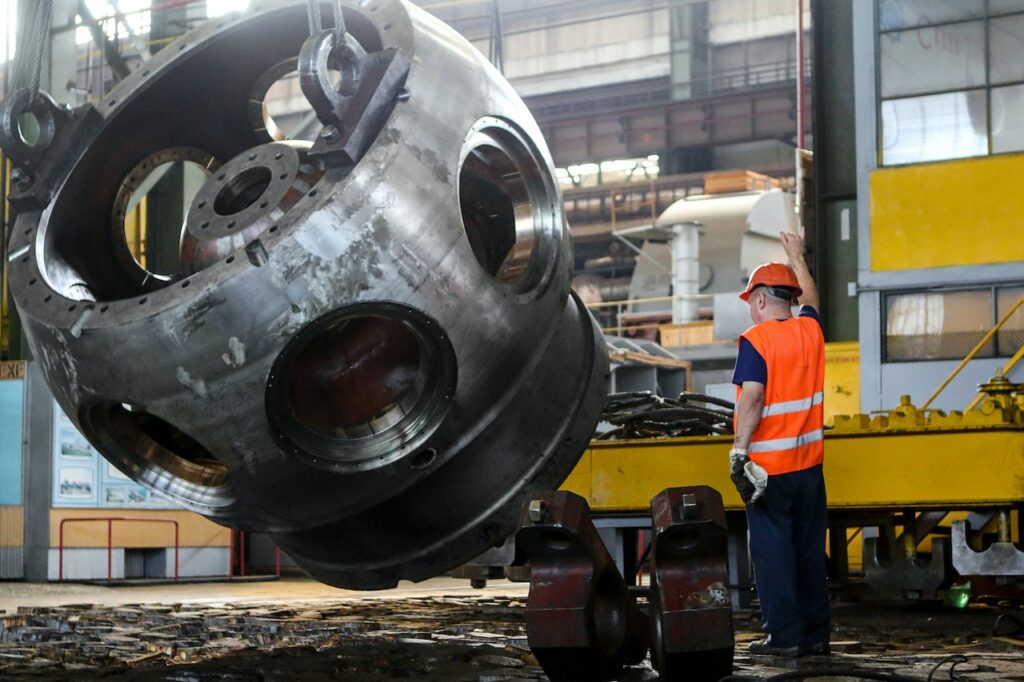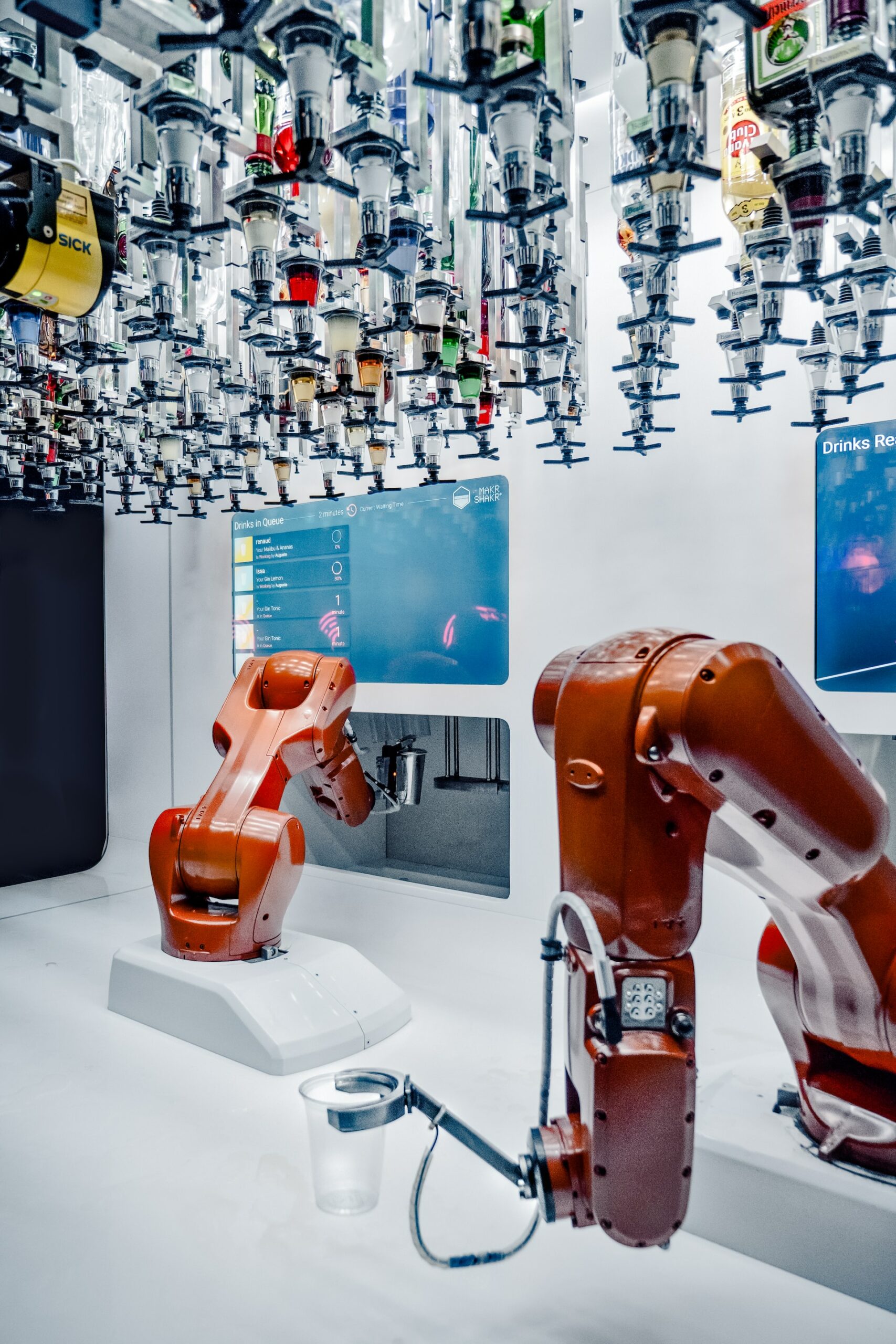Do you know how many jobs are available in industrial machinery/components? The answer may surprise you.
Producing machinery/components are consistently in-demand, providing various employment opportunities. So, if you’re considering a career path in this sector, there are multiple pathways to follow.
There are more than 2.1 million employment opportunities in the industrial machinery and components sector in the United States.
According to the U.S. Bureau of Labor Statistics, the industrial machinery/components industry has over 208,800 jobs available.
Emerging centers of production like Austin, Texas, and Silicon Valley boost the development of this sector in the country.
As the world becomes more automated and technology-driven, the demand for skilled professionals in this field is rising.
This article will explore the exciting opportunities available in industrial machinery and components.
Industrial Machinery/Components: What are They?
The industrial machinery/components industry is changing rapidly due to technological advancements and heightened competition.
This sector includes critical parts like propellers, controls, instrumentation, bearings, transmissions, and turbines. They are essential for machines to work correctly and provide value to businesses.
Industrial machinery/components like screws, valves, pulleys, and gears are crucial for manufacturing, agriculture, construction, and other sectors.
By synchronizing these components efficiently, companies can keep their equipment running smoothly and save money on repairs.
How Do Industrial Machinery/Components Work?
The development of nations relies heavily on their industrialization, which requires industrial machinery/components in manufacturing processes.

The industrial sector comprises machinery and parts used in manufacturing, mining, and related operations.
These machines come in different categories, like mechanical, electrical, and electronic, each with a unique function to accomplish specific tasks.
Machinery components can range from small bolts to large casings and work together to produce the desired output.
The production, assembly, and sales of these industrial machinery/components provide employment opportunities for people seeking jobs in this field.
Therefore, the industrial machinery/components industry is crucial in creating jobs and developing a nation.
How Many Jobs Are Available In Industrial Machinery/Components?
The production of manufactured goods requires industrial machinery and various components.
This process involves converting raw materials into finished products, called “industrial manufacturing.”
The U.S. Bureau of Labor Statistics data puts the number of available industrial machinery/components jobs at 208,800.
Positions in this industry have a 10-year growth outlook of 14%, growing faster than other sectors.
The number of job opportunities available within each field may vary depending on the specific company. However, there are typically many openings in various areas.
Types of Jobs Available in Industrial Machinery/Components
The production of industrial machinery/components is a crucial aspect of the economy as it provides essential goods and services.
This sector is among the highest-paying because of its attractive salary and perks. Industrial machinery jobs are diverse and can be found in different sectors, such as metalworking, processing, and material handling.
Here are the job types to further satisfy your curiosity about the employment opportunities available in industrial machinery/components.
Mechanical Engineer
A mechanical engineer designs and develops mechanical systems and equipment.
This may include everything from machine tools and engines to manufacturing equipment and vehicles.
To create designs, they employ computer-aided design (CAD) software, test prototypes, and oversee manufacturing.
Examples include designing gears for machinery, developing automated systems for manufacturing, designing, and testing vehicles’ engines.
Electrical Engineer
Electrical engineers create and build electrical systems, such as motors, generators, and other components.
They also develop and monitor the production of electronic circuits, power systems, and control systems.
Examples include designing control systems for automated equipment, developing factory power distribution systems, and designing circuits for industrial machinery.
Machinist
A machinist operates and maintains precision metal parts produced using machine tools, including lathes, milling machines, and grinders. They may work with various materials, including metals, plastics, and composites.
Examples include fabricating metal parts for engines, assembling components for manufacturing equipment, and producing molds for plastic injection molding.
Quality Control Inspector
A quality control inspector ensures that industrial machinery and parts meet all the standards and specifications.
They inspect parts, products, and equipment during manufacturing to identify defects or flaws.
Examples include inspecting welds on machinery, testing electrical components for defects, and inspecting finished products for quality assurance.
Production Manager
A production manager oversees the manufacturing process and ensures that products are produced efficiently, on time, and within budget.

They manage the production schedule, coordinate with suppliers and vendors, and monitor the quality of the finished products.
Examples include overseeing the production of automated assembly lines, managing the production of precision components, and supervising heavy machinery assembly.
Sales Engineer
A sales engineer sells industrial machinery and components to businesses and organizations.
They describe the characteristics and advantages of their items using their technical knowledge, provide quotes, and negotiate contracts.
Examples include selling robotics systems for manufacturing, pumps, and valves for the oil and gas industry, and heavy construction machinery.
Service Technician
A service technician installs, maintains, and repairs industrial machinery and components.
They diagnose and fix mechanical and electrical problems and perform preventive maintenance to ensure equipment runs smoothly.
Examples include servicing hydraulic systems on heavy machinery, repairing electrical components on manufacturing equipment, and performing maintenance on industrial pumps and valves.
Key Takeaways
The industrial machinery/components sector has several job prospects. They include positions such as engineers, technicians, machinists, quality control inspectors, and product managers.
The industry is expected to grow steadily due to increasing demand from the automotive, agriculture, aerospace, and construction industries.
Academic qualifications required for these jobs vary from a diploma to a degree in engineering or a related field.
FAQs
1.) What Qualifications And Abilities Are Necessary For Employment In Industrial Machinery/components?
Candidates for jobs in Industrial Machinery/Components typically require technical skills such as mechanical engineering, manufacturing processes, and quality control.
However, a degree in a relevant field is generally needed for technical roles. At the same time, experience may be preferred for some positions. They also require soft skills like problem-solving and collaboration.
2.) What Is The Job Outlook For Industrial Machinery Components?
The job outlook is positive due to the growing demand for industrial machinery/components in response to automation and technological advancements.
However, the perspective may vary depending on the industry and economic conditions.
Factors like trade policies, environmental regulations, and supply chain disruptions may also influence job growth in this sector.
3.) Will Automation Take All Job Opportunities In Industrial Machinery/components?
No, it won’t. Statistics have proven that working in industrial machinery/components has long-term advantages.
Even though automation continues advancing, technicians and mechanics must design, maintain, and enhance these emerging innovations.
Furthermore, no expert believes that machinery will vanish anytime soon. As a result, it’s reasonable to expect that job stability in this industry will be critical in the coming years.

